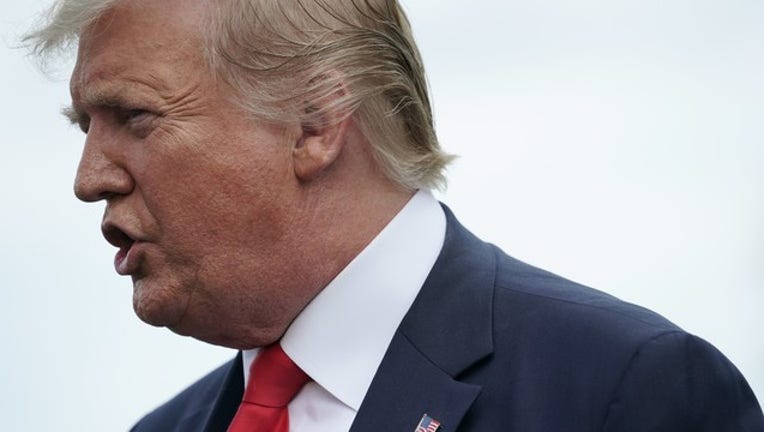Taking a deeper look into President Trump's rhetorical style headed into 2020

U.S. President Donald Trump speaks to members of the media prior to a departure from the White House June 18, 2019
HOUSTON (FOX 26) - President Donald Trump made his campaign for re-election in 2020 official Tuesday at a rally in Orlando, Florida with a speech that garnered enthusiasm from his followers.
Trump has collected an incredibly loyal base, despite many factors that have turned other voters away.
Dr. Jennifer R. Mercieca, rhetoric expert and Associate Professor of Communications at Texas A&M analyzed his campaign announcement speech, taking a look at patterns and details that draw his followers in.
"The overarching rhetorical figure used in the speech was an ad populum appeal (appealing to the wisdom of the crowd). Trump praised his followers as wise, good, and patriotic Americans. He said that they were his 'only special interest,' and promised that he would never let them down," says Dr. Mercieca.
As a politician, it can be argued that one's relationship with the public is even more important than specific issues and accomplishments.
"Appealing to the wisdom of the crowd is a smart strategy for Trump because he is attempting to reaffirm and solidify his relationship with his base," she says. "His rally crowd was very enthusiastic and responded well to his appeal."
While entering the 2020 presidential election landscape that is littered with potential Democratic candidates, Trump didn't seem concerned about roping in new voters, only solidifying relationships with existing ones.
"Furthermore, this speech was just for Trump's base. I don't think anyone is going to be persuaded to vote for him who didn't already support him. Trump has once again invoked his followers (he typically call them his "fans") as the only real and pure Americans," says Dr. Mercieca.
A tactic seen before from Trump made a reappearance at Tuesday night's rally.
"The most terrifying part of Trump's speech was that he repeatedly delegitimized his political opposition.," says Dr. Mercieca. "They weren't just mistaken or preferred different policies, but they were constituted as evil, as anti-American, and as irrational aggressors who should be destroyed. That's dangerous authoritarianism and is typically a part of war rhetoric."
The biggest change from earlier rallies was the change in Trump's slogan.
"Make America Great Again" has been replaced by "Keep America Great." KAG only has power if Trump's base feels like things have improved for them so much over the past few years that they have something to lose," she says. "MAGA hit on all of the 2016 sweet spots of alienation, distrust, fear of displacement, and authoritarianism. When Trump polled his rally crowd about which they preferred, Keep America Great won by a good margin."

